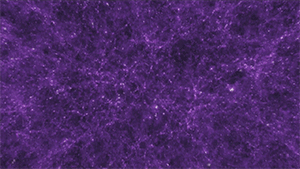
The discovery that the expansion of space is accelerating presents one of the most important scientific problems of our time. The implication that the universe is dominated by an unknown entity, now called "dark energy," that counters the attractive force of gravity, may revolutionize our understanding of cosmology and fundamental physics. Although observations with ground-based and orbital assets—including HST, Chandra, and WMAP—have confirmed the acceleration, we know very little about the most basic properties of dark energy. There is currently no theory based on known physics that can quantitatively explain dark energy. Quantum physics over-predicts the amount of observed dark energy by a factor of 10120. Empirical observations are critical to distinguishing whether dark energy is consistent with Einstein's Cosmological Constant, whether it is due to a dynamic quintessence field that changes over space and time, or whether it is simply a failure of Einstein's General theory of Relativity at cosmic scales. Because it seems to control the expansion of the Universe, we cannot predict the fate of the Universe—Will the Universe last forever?—without understanding the physical nature of dark energy.